Related Research Articles

Fuller's Brewery in Chiswick, west London, England, is the former brewing division of Fuller, Smith & Turner PLC. It was a family-run business from its foundation in 1845 until 2019, when it was sold to the Japanese international beverage giant Asahi.
Webster's Brewery was a brewery founded in 1838 by Samuel Webster which operated at the Fountain Head Brewery in Halifax, West Yorkshire, England. Webster's Green Label, a light mild, and Yorkshire Bitter gained national distribution after the company was taken over by Watney Mann in 1972. Throughout the 1970s it was known for the advertising slogan: "Drives out the northern thirst".
Spurrell is a surname found in Norfolk, Wales and other parts of the United Kingdom, as well as in various countries around the world.

James Watney was an English brewer and landowner who resided at Haling Park, Croydon, and Beddington, Surrey. He was born to Daniel Watney (1771–1831) of Mitcham, Surrey and Mary Galpin (1771–1830), daughter of James Galpin of Mitcham, Surrey. He was the grandson of John Watney (1747–1814) and great-grandson of Daniel Watney (1705–1780) of Wimbledon, Surrey who was an ale conner.
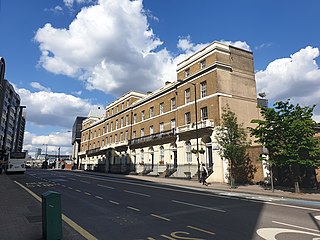
Anchor Terrace is a large symmetrical building on the east side of Southwark Bridge Road in London, situated very close to the River Thames. It was built in 1834, and its original inhabitants were senior employees of the nearby Anchor Brewery, Southwark, which was then owned by Barclay Perkins & Co. Ltd. The building was later used as the brewery's offices. It overlooks the site of the former brewery and is next to the headquarters of the Financial Times.
Frederick Spurrell was an Anglican priest and archaeologist.
James Shears and Sons was a firm of London coppersmiths and braziers who were active from c1785 to 1891. The firm was founded by James Shears (c1750-1820) and continued by his two sons Daniel Towers Shears (1782–1860) and James Henry Shears (1788–1855) and subsequently by William Shears.
Tolly Cobbold is a former brewery in Suffolk, England.
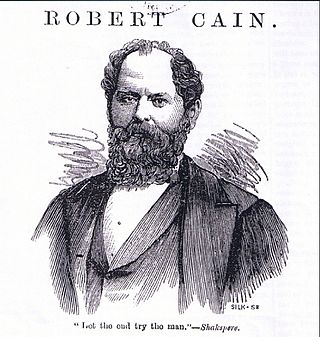
Robert Cain (1826–1907) stands as a notable figure in the brewing industry, particularly renowned for his role in establishing Robert Cain and Sons, a prominent brewery located in Liverpool, England.
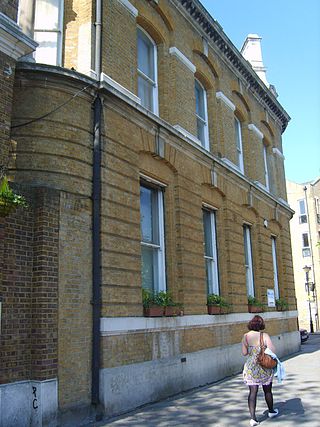
Charrington Brewery was founded in Bethnal Green, London, in the early 18th century by Robert Westfield. In 1766, John Charrington joined the company, which then traded as Westfield, Moss & Charrington from the Anchor Brewery in Stepney. It merged with United Breweries of London in 1964, and with Bass Brewery in 1967 to become the largest UK brewing company, Bass Charrington. The brewing operations of the company were bought by Interbrew in 2000, while the retail side were renamed Six Continents. In 2003, Six Continents split into a pubs business, now known as Mitchells & Butlers, and a hotels and soft drinks business, now known as InterContinental Hotels Group.
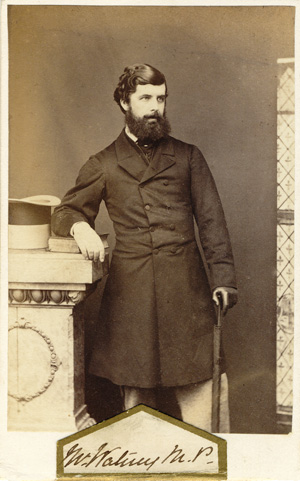
James Watney Jr. was a prominent member of the Watney family and a Conservative Member of Parliament for East Surrey.

Burton upon Trent has a long history of brewing, at one time exporting beer throughout the world and accounting for a quarter of UK beer production; emulation of Burton water in brewing is called Burtonisation. Much of the town was given over to the industry throughout the 19th century and brewers dominated it politically and socially.
Clinch Brewery was an English brewery, located in the town of Witney, Oxfordshire. It was founded by James Clinch around 1811.
Combe Delafield and Co. was among the major brewers in London during the nineteenth century, before being acquired by Watney in 1898, thus forming Watney Combe & Reid.
Watney Combe & Reid was a leading brewery in London. At its peak in the 1930s it was a constituent of the FT 30 index of leading companies on the London Stock Exchange. It produced Watney's Red Barrel.

A brewery or brewing company is a business that makes and sells beer. The place at which beer is commercially made is either called a brewery or a beerhouse, where distinct sets of brewing equipment are called plant. The commercial brewing of beer has taken place since at least 2500 BC; in ancient Mesopotamia, brewers derived social sanction and divine protection from the goddess Ninkasi. Brewing was initially a cottage industry, with production taking place at home; by the ninth century, monasteries and farms would produce beer on a larger scale, selling the excess; and by the eleventh and twelfth centuries larger, dedicated breweries with eight to ten workers were being built.
Truman's Brewery was a large East London brewery and one of the largest brewers in the world at the end of the 19th century. Founded around 1666, the Black Eagle Brewery was established on a plot of land next to what is now Brick Lane in London, E1. It grew steadily until the 18th century when, under the management of Benjamin Truman, and driven by the demand for porter, it expanded rapidly and became one of the largest brewers in London. Its growth continued into and through the 19th century with the expansion of its brewery and pub estate. In 1873, it purchased Philips Brewery in Burton and became the largest brewery in the world.
Phipps Northampton Brewery Company Ltd has a long and varied history of brewing real ale and stout. It is based in Northampton, England.
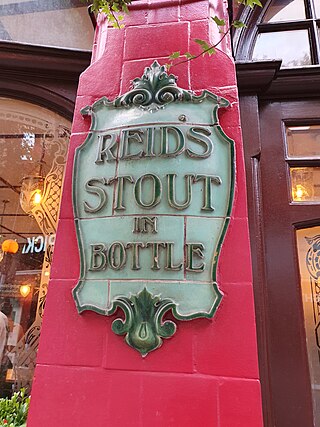
Reid & Co was a large British brewery based in London.
References
- ↑ 1841 census
- ↑ The Gray’s (sic) of Grays Lane, Edna Stacey, March Museum, 2007
- ↑ The Pamphleteer, "Observations on the vinous fermentation; with a description of a patent apparatus to improve the same. Also a statement of the advantages to be derived from this system when applied to the process of brewing, as confirmed by the testimony of Messrs. Gray and Co., brewers, of Westham, in the County of Essex". Vol. XXII, pamphlet No. XLIII (1823).
- ↑ Fry K., History of the Parishes of East and West Ham (1888)
- ↑ Spurrell, J. C., The life of Charles Spurrell and his family's links to the Watney and Gray brewing families, Brewery History No. 138 (December 2010)
- ↑ The Times, 6 June 1846